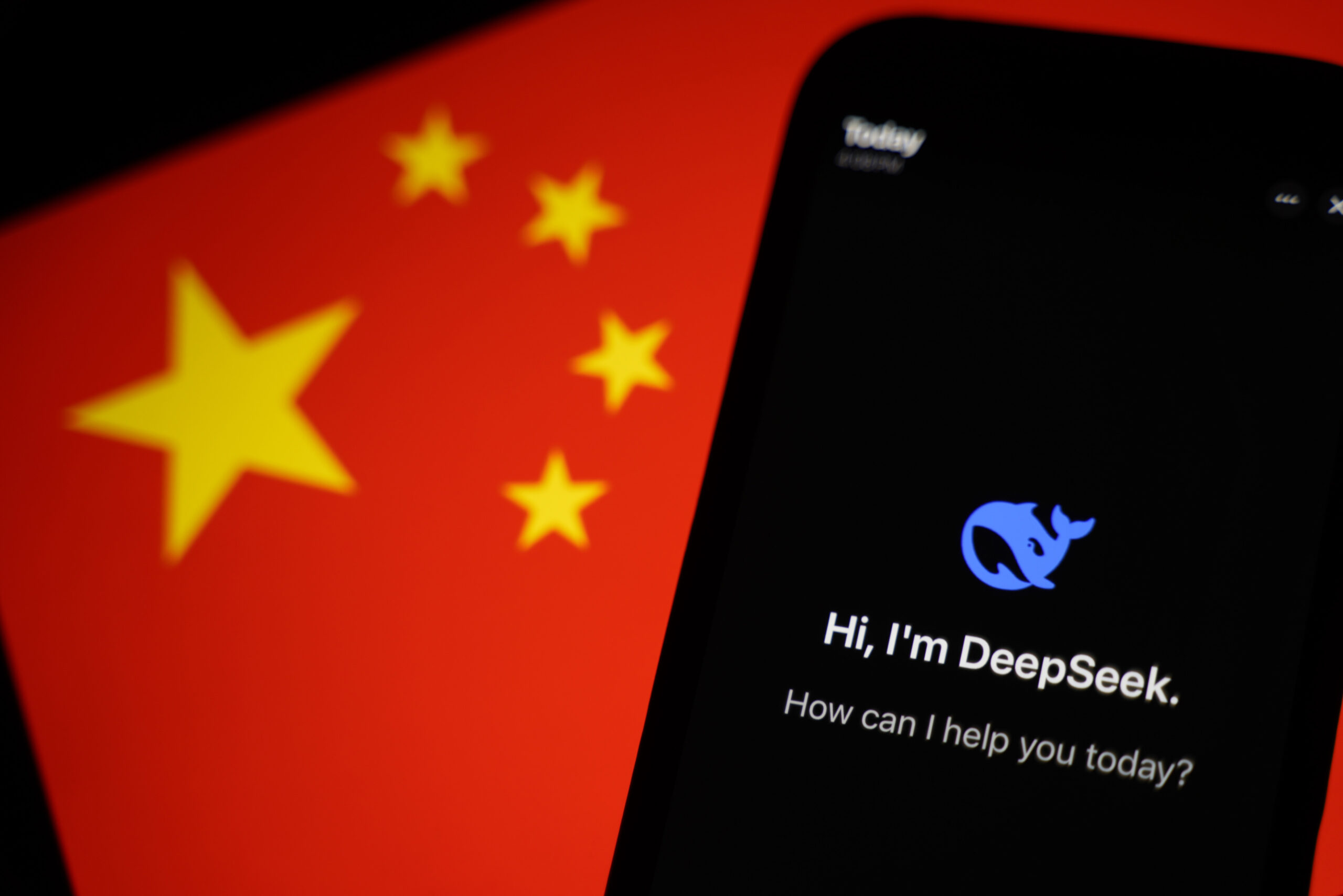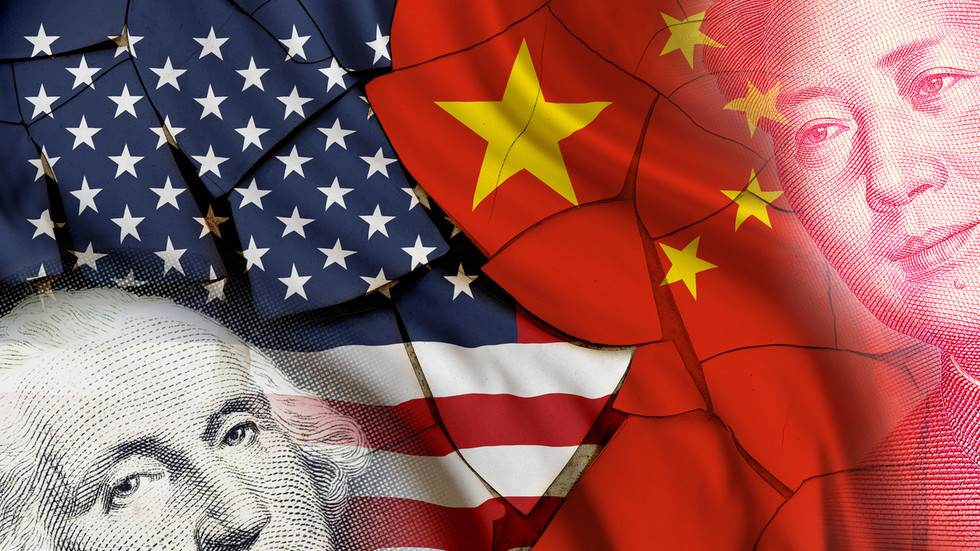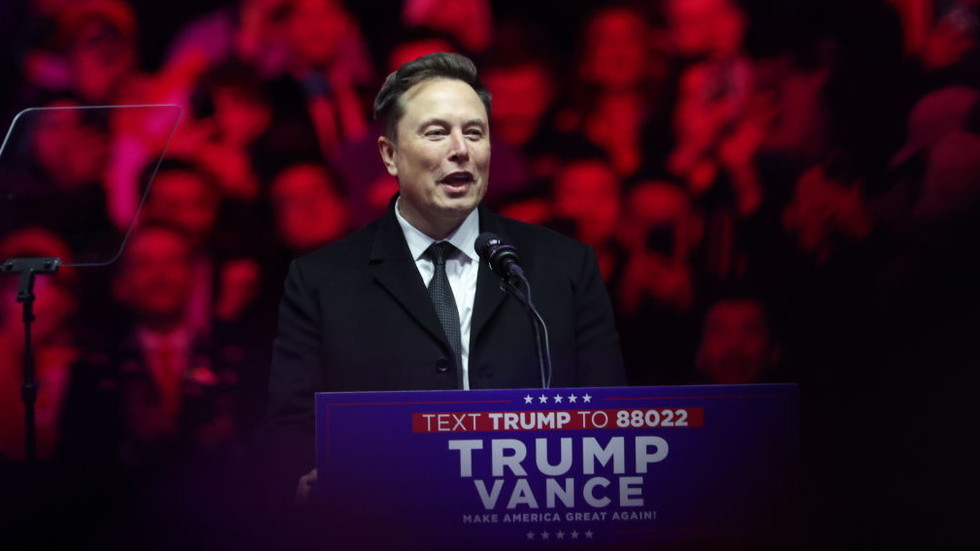Politics
DeepSeek Is America's Wake-Up Call
And Trump’s reaction to DeepSeek R1’s release was informed and multifaceted.

NVIDIA was blood red. President Trump warned it was a “wake up call.” More than $1 trillion had been wiped from Wall Street. Overnight. The AI arms race was finally front and center.
On the eve of Lunar New Year, Chinese hedge fund billionaire Liang Wenfeng had a surprise for the West that no one saw coming. Liang’s Hangzhou-based DeepSeek AI lab had bested America's finest in front of the whole world, and they'd done it on a bootstrap budget. Perplexity CEO Aravind Srinivas called it “DOGE for AI.”
“What took Google and Open AI years and hundreds of millions of dollars to build, DeepSeek says took it just two months and less than 6 million dollars,” CNBC reported after DeepSeek’s release of its free Large-Language Model, R1, sent the stock price of major tech giants spiraling in the early week of trading.
Large-Language Models (LLMs) are the engines that power chatbots and other A.I. applications. Their abilities in mathematics, language reasoning, and coding promise a new world of extreme efficiency and cost-saving for corporations and individual citizens alike. America and its big-money tech teams had used cash advantages to outpace and corner the market. Until this week.
DeepSeek's free, open-source model is reportedly sharper at reasoning than the pay-to-play offerings from OpenAI and Google. Developers eager to work with the new platform downloaded DeepSeek R1 en masse. By Tuesday, the Chinese-based A.I. product sat atop Apple's App Store.
As Silicon Valley’s best and brightest piled enormous sums of money into proprietary LLMs over the last half decade, Liang and his team were busy creating a leaner, more cost-efficient model for a fraction of the cost on the other side of the ocean–or so they said. But more on that later.
Liang, a maverick businessman who made billions in the early 2020s off his quant trading hedge fund High-Flyer, spent years purchasing a war chest of dated Nvidia chips. News outlets labeled the move “eccentric,” but Liang could see the computer code on the whiteboard. He hired the smartest students China had to offer and quietly got to work. The end result is DeepSeek, an LLM that is reportedly smarter, faster, and more cost-effective than any of its American peers. And the platform is open source, meaning developers can tinker with it to their heart’s delight.
“They have the best open source model, and all the American developers are building on that,” Srinivas explained when describing the environment that jolted western markets on Monday.
In the world of semiconductors and AI, Nvidia’s designed-in-America A100 chip is the undisputed champion for professional AI tasks. Its capacity for high-memory bandwidth and unmatched processing power makes it the most sought-after chip for AI startups in America and around the world. Sensing the coming arms race, U.S. regulators barred Nvidia from selling the A100s to Chinese companies in 2023 in a bid to slow the rapid ascent and competition from dedicated startups in the Middle Kingdom.
So when DeepSeek proved it had produced a cleaner, cheaper version of the LLM model, and had done it using the older H800s, Wall Street reacted with sheer and utter panic.
The chaos that has unfolded, in the markets and in the intellectual town square, over the last few days is mind-numbing. Nvidia sank 17 percent on Monday, then it rallied on Tuesday, and then sank again on Wednesday. By mid-week Microsoft was accusing DeepSeek of illegally stealing OpenAI’s intellectual property to create R1–and then later that day announced that the model was available on its AI platforms. Questions began to be raised about DeepSeek’s claim that it needed only $5.5 million to create its R1 model. OpenAI’s Sam Altman says it cost $100 million to train its chatbot GPT-4 and Meta plans to pour $65 billion into AI ventures in coming years.
Much of the shock was due to the $5.5 million investment number. If a group of rag-tag Chinese computer scientists and their eccentric billionaire owner could outperform American giants, a deep rethink of the space might be needed. But not everyone was buying it.
“The $5M number is bogus,” declared Palmer Luckey, founder of Oculus Rift, on X.“It is pushed by a Chinese hedge fund to slow investment in American AI startups, service their own shorts against American titans like Nvidia, and hide sanction evasion.”
Luckey added: “America is a fertile bed for psyops like this because our media apparatus hates our technology companies and wants to see President Trump fail.”
Alexandr Wang, CEO of Scale AI, also cast doubt on DeepSeek’s purported lack of resources, saying the company likely possesses high-end chips. “Chinese labs have more H-100s than people think,” Wang argued. “My understanding is that DeepSeek has about 50,000 H-100s which they can’t talk about obviously because it is against the export controls the United States has put into place.”
President Trump stepped into the fray almost immediately, questioning what exactly it meant for American tech companies and American workers. After all, the 78-year-old Trump, who spent his second day in office wheeling and dealing with SoftBank CEO Masayoshi Son, had lined up $500 billion in new, private-sector investments in AI infrastructure. In a press conference with Son on hand, Trump said the investments would account for 100,000 new jobs. If there was going to be an AI arms race–and it's clearly already underway–Trump was going to do what he could to make sure America wins.
Trump’s reaction to DeepSeek R1’s release was informed and multifaceted. First and foremost, Trump spoke as a capitalist: “It’s good because you don't have to spend as much money. I view that as a positive." Then he spoke as an American: “We should be laser focused on competing to win. We have the best scientists in the world. This is very unusual. We always have the ideas. We’re always first.”
His first statement was standard fare, but within the second point, the one about the U.S. having the “ideas,” there sat a damning indictment of the way American companies have allowed bureaucratic bloat to overwhelm ingenuity this last decade. If the Chinese are turning out math geniuses ready to code the future, Americans have become best known for shuffling middle managers based on the interpersonal and political machinations of the moment.
Trump wasn’t going to take the beating lying down. On Thursday, he announced he was contemplating new, stringent export restrictions on Nvidia’s chips to China. Nvidia’s share price sank another seven percent in response to the news. But Perplexity CEO Srinivas noted that chip restrictions, in some ways, have forced China to take the road less traveled and think outside the box when designing its competitive platforms.
“China has a lot of disadvantages competing with the US,” Srinivas said. “They don’t get access to all the hardware that we have access to here, so they’re working with lower-end GPUs than us. It’s almost like working with a previous generation’s GPU scrappily. The fact that the bigger models tend to be smarter naturally puts them at a disadvantage, but the flip side of this is that necessity is the mother of invention. Because they had to go figure out work-arounds, they actually ended up building something more efficient.”
That efficiency is key to understanding the market selloff that is deepening as the week goes on. DeepSeek can be run on a stack of M4 MacBook Pros while American companies and investors have poured billions into American AI servers. It all suggests that U.S. companies have spent excessively, used too much energy, and overcharged for services rendered. Microsoft fell more than seven percent on its Q4 2024 earnings report released Thursday amid unease surrounding DeepSeek.
One American company that has so far weathered the storm is Mark Zuckerberg’s Meta, which rose in the after-hours market following a bullish Q4 earnings report on Thursday. As stated previously, Zuckerberg’s company is throwing big money at AI with the expectation that artificial intelligence will revolutionize consumer-corporate environments.
"I expect that this is going to be the year when a highly intelligent and personalized AI assistant reaches more than one billion people, and I expect Meta AI to be that leading AI assistant,” Zuckerberg said in a statement released with the earnings report Thursday.
Not to be outdone by its attention-grabbing rivals, Chinese-based Alibaba announced Thursday that its new AI model Qwen 2.5 outpaces advancements made by DeepSeek V3, a different LLM model released by the company. The markets reacted by boosting BABA’s share price by more than six percent in one trading day.
Subscribe Today
Get daily emails in your inbox
The frenetic week in technology and markets is evidence of AI’s exciting but confounding prospects. The engines of tomorrow are beginning to outrun the people who make them today. Ideas about privacy, consciousness, permanence, and the threshold of human creativity are suddenly being discussed in ways that suggest a radical shift in the way humanity views itself and the machines that power our world. And those discussions are being supercharged by new technologies that would have seemed far-fetched even a decade ago.
Author and poet Charles Bukowski once wrote: “What matters most is how well you walk through the fire.” While it’s advantageous for humans to wade carefully into the age of advancing robotics and machine learning, it’s important for Americans (and the conservatives who read our broadsheet) to recognize and embrace the implications of this wide-ranging tech.
Our world is now set in a motion that cannot be reversed, and time spent pining for the past will be wasted. AI isn’t coming–it’s already here and it's rewriting the rules. For now, leveraging trade controls and investing in education that can identify and develop new American talent in mathematics is imperative if we are to compete with the Chinese in the coming AI wars.

 By The American Conservative (World News) | Created at 2025-02-02 05:05:11 | Updated at 2025-02-02 08:44:11
3 hours ago
By The American Conservative (World News) | Created at 2025-02-02 05:05:11 | Updated at 2025-02-02 08:44:11
3 hours ago








